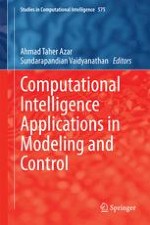2015 | OriginalPaper | Buchkapitel
A Computational Intelligence Optimization Algorithm Based on the Behavior of the Social-Spider
verfasst von : Erik Cuevas, Miguel Cienfuegos, Raul Rojas, Alfredo Padilla
Erschienen in: Computational Intelligence Applications in Modeling and Control
Aktivieren Sie unsere intelligente Suche, um passende Fachinhalte oder Patente zu finden.
Wählen Sie Textabschnitte aus um mit Künstlicher Intelligenz passenden Patente zu finden. powered by
Markieren Sie Textabschnitte, um KI-gestützt weitere passende Inhalte zu finden. powered by
